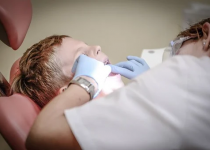How Can I Improve My Lungs?
The lungs can be improved with breathing exercises and light physical activity. This includes walking and stationary biking.
One simple lung exercise is pursed lip breathing or belly breathing. Another is to count how long it takes for you to inhale and exhale naturally. Exercise should not cause shortness of breath; if it does, stop and relax.
1. Breathing Exercises
Breathing exercises can improve lung health and help people cope with COPD symptoms. They can also lower anxiety and stress.
Deep breathing encourages full oxygen exchange the beneficial trade of incoming oxygen for outgoing carbon dioxide. It’s one of the easiest breathing techniques to learn and can be done lying down or sitting.
Using an incentive spirometer can help people develop the habit of deep breathing and strengthen their lung muscles. Ideally, Simple Breathing Exercises are performed in a quiet environment and under the guidance of a respiratory professional.
2. Exercise
Just like other muscles in the body, your lungs benefit from exercise. Getting moderate physical activity about five days per week can help improve your lung health.
When you exercise, your lungs work harder to supply the extra oxygen needed to fuel your body’s movements. As a result, they get stronger over time.
Belly breathing or pursed lip breathing, a form of diaphragmatic breathing, can help strengthen the lungs. For best results, do this while sitting up straight.
Taking vitamins and supplements can also help. But it is important to talk to your doctor before starting any new supplements. They may recommend a specific regimen to achieve your goals. A breath trainer such as the FIGERM Breath Trainer is a great way to practice breathing exercises and improve lung function over time.
3. Diet
Along with zero smoking and regular exercise, a healthy diet is one of the best ways to improve your lungs. The lungs rely on a variety of nutrients to function, so making sure you get enough can help to prevent disease or improve symptoms of existing conditions like asthma and COPD.
Fatty fish and omega-3 fatty acids can help to prevent inflammation and support airway health. Leafy vegetables and fruits that are red, yellow, or orange in color can provide dietary nitrates, magnesium, vitamin C, carotenoids and curcumin to help keep the lungs healthy. A diet high in water is also important to keep the mucosal linings of the lungs hydrated and protect against irritation. Drinking six to eight glasses a day can be beneficial.
4. Hygiene
Just as arm or leg muscles get stronger with exercise, your lungs work out and grow healthier, too. Lungs also help the heart circulate more oxygen to other parts of the body for energy and move out carbon dioxide.
A healthy layer of mucus protects your lungs against bacteria, germs and other harmful substances. Maintaining good hygiene helps prevent respiratory infections and promotes healing after an infection.
Avoid smoking, which contributes to many lung diseases. Keep your home and car smokefree, test for radon and use a HEPA filter. Wear masks when working with secondhand smoke, irritants and other airborne chemicals. Check local air quality reports and minimize prolonged exposure outdoors on days when pollution levels are high. Brush your teeth and wash your hands often.
5. Sleep
Getting good sleep is important for your overall health, but it’s especially important if you have COPD. This is because lack of sleep can make symptoms worse and increase your risk of infection with the coronavirus.
Aim for about seven to nine hours of sleep a night. Adjusting your sleeping position can also help, as lying flat puts pressure on the lungs. Sleeping with your head slightly elevated can also prevent acid reflux, which can cause coughing and waking at night.
Practice breathing exercises like pursed lip breathing to keep your airways open longer, helping you breathe in and out more effectively. Also, exercise regularly to strengthen the muscles of your body, including those that support and aid breathing. Exercises such as walking briskly, recreational biking and gardening can all be beneficial to your lung health.

